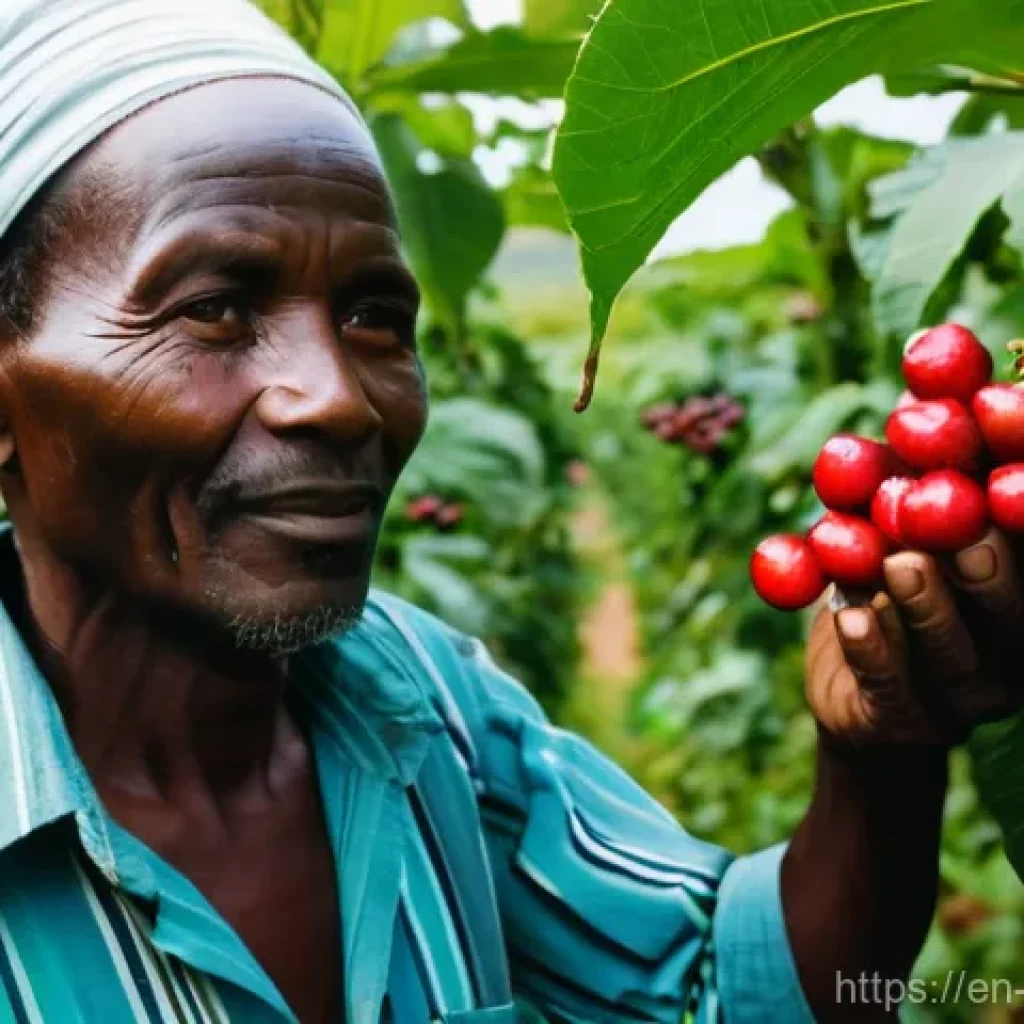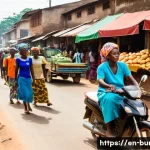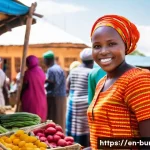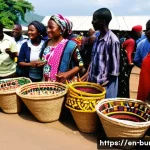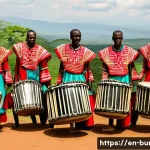Hey coffee lovers! Have you ever truly pondered the journey of your morning brew, especially when it comes from places like Burundi? It’s a small, beautiful nation in East Africa, and I’ve personally been captivated by how coffee isn’t just a crop there; it’s the very lifeblood of its people.
These dedicated smallholder farmers, often working plots barely larger than an acre, meticulously cultivate some of the world’s most exquisite Arabica beans, predominantly the Bourbon varietal, which is renowned for its complex acidity, silky body, and sweet flavors.
Despite facing significant challenges like economic instability, climate change, and limited access to resources, their unwavering commitment to producing high-quality specialty coffee, with its vibrant notes of citrus, berries, and honey, is genuinely inspiring.
The evolving specialty coffee market, coupled with initiatives focused on fair trade and improved processing at washing stations, is creating new avenues for these communities, transforming their raw product into a sought-after gem.
It’s a powerful story of heritage, hope, and the relentless pursuit of perfection in every single coffee cherry, impacting hundreds of thousands of families whose livelihoods depend on this precious crop.
Let’s delve deeper into the rich tapestry of Burundi’s coffee farming and discover what truly makes it special.
The Heart of the Bean: Unveiling Burundi’s Coffee Soul
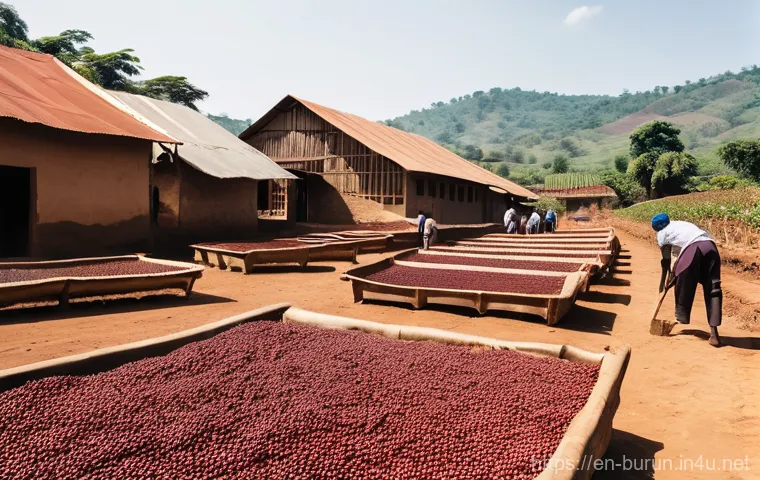
You know, there’s something truly magical about sitting down with a cup of coffee that has a story behind it, a real journey from earth to mug. When I first delved into the world of Burundian coffee, I wasn’t just tasting a beverage; I was experiencing a piece of a nation’s soul. These beans carry the essence of a land that, despite its small size, contributes some of the most vibrant and complex flavors to the global coffee scene. It’s not just about the rich volcanic soil or the perfect altitude; it’s about the relentless spirit of the people, the generations of knowledge passed down, and a profound connection to the land. Every sip I take of a quality Burundi coffee reminds me of the sunshine on the hills and the painstaking care that went into cultivating those precious cherries. It’s an immersion into a culture where coffee isn’t merely an export; it’s woven into the very fabric of daily life and economic survival. I’ve heard countless stories from roasters who swear by Burundi’s unique profile, and after tasting it myself, I completely understand the hype. The complexity, the clarity, the sheer joy in every brew – it’s unparalleled.
More Than Just a Crop: A Way of Life
For hundreds of thousands of families in Burundi, coffee is far more than just a cash crop; it is their primary source of income and, quite frankly, their lifeline. Imagine dedicating your entire year, your family’s efforts, to nurturing these delicate plants, knowing that the quality of that year’s harvest will directly impact your children’s education, your access to healthcare, and your ability to put food on the table. That’s the reality for many smallholder farmers in Burundi. It’s a generational craft, with knowledge and passion passed down from parents to children, often on plots of land no bigger than an average backyard. This deep-rooted connection to the land and the crop creates an incredible sense of stewardship and pride, which, I believe, directly translates into the exceptional quality of the coffee they produce. I’ve always felt that when you drink coffee from such a dedicated origin, you’re tasting that passion too, that unwavering commitment to excellence.
The Prized Bourbon Varietal: A Flavor Deep Dive
If you’re a true coffee connoisseur, you’ve probably heard whispers of the Bourbon varietal, and let me tell you, Burundi’s Bourbon beans are truly something special. This particular varietal, a classic Arabica, thrives in the high altitudes and fertile soils of Burundi, developing an astonishing range of flavors. When I brew a freshly roasted Burundian Bourbon, I’m always struck by its distinctive characteristics: a complex, often sparkling acidity that dances on the tongue, a beautiful silky body that coats your palate, and a remarkable sweetness that can range from brown sugar to honey. You’ll often pick up notes of bright citrus, juicy red berries, and sometimes even a delicate floral hint. It’s not a coffee that hides its flavors; it showcases them with a vibrant clarity that makes every cup an adventure. This particular varietal is a significant reason why Burundi has earned its place on the specialty coffee map, offering a consistent and captivating profile that serious coffee lovers, like myself, constantly seek out.
Small Hands, Big Flavor: The Dedication of Burundian Farmers
I’ve always believed that the best coffee isn’t just grown; it’s nurtured with incredible dedication, and nowhere is this more apparent than in Burundi. The vast majority of coffee in this East African gem comes from smallholder farmers, often tending to plots of land that are surprisingly small, sometimes less than an acre. Yet, on these modest parcels, they cultivate some of the most sought-after Arabica beans in the world. It’s a labor of love, requiring meticulous attention to detail from the planting of seedlings to the careful harvesting of ripe red cherries. I’ve heard firsthand accounts of farmers who know each of their coffee trees intimately, understanding its unique needs and how best to coax out the finest flavors. This level of personal investment, this deep, almost spiritual connection to their crop, is what sets Burundian coffee apart. It’s a testament to human spirit and resilience, transforming challenging circumstances into opportunities to produce something truly extraordinary.
Cultivating Excellence on Tiny Plots
The image many of us have of coffee farms might be vast, sprawling plantations, but in Burundi, the reality is beautifully different. Here, coffee farming is an intricate mosaic of countless small plots, each managed by a family whose livelihood depends on its success. These farmers don’t just grow coffee; they live and breathe it. They understand the nuances of the soil, the precise timing for pruning, and the critical window for harvesting only the perfectly ripe cherries. This isn’t mass production; it’s artisan farming on a grand scale, spread across thousands of individual efforts. When I speak to roasters who specifically source from Burundi, they often highlight this hands-on approach as a key factor in the coffee’s superior quality. It’s a testament to the idea that sometimes, smaller really is better, especially when it comes to crafting something as delicate and complex as specialty coffee.
The Journey of a Coffee Cherry
It’s easy to overlook the incredible journey each coffee cherry undertakes before it even reaches a washing station. For Burundian farmers, this journey is a daily ritual, often involving long walks up and down steep hillsides to reach their scattered plots. Once the cherries are ripe—and I mean perfectly red, not a hint of green—they are hand-picked with an astounding level of care. This selective harvesting, known as ‘cherry picking,’ is crucial. It ensures that only the best, sweetest cherries proceed to processing, laying the foundation for the complex flavors we adore. I can only imagine the dedication required, day after day, under the East African sun, to meticulously select each cherry. This initial step, though often unseen by the consumer, is a massive contributor to the high quality and vibrant character that defines Burundi’s specialty coffee. It’s a labor-intensive process that truly showcases the farmers’ commitment.
From Cherry to Cup: The Art of Processing at Washing Stations
Once those meticulously hand-picked cherries leave the farmer’s plots, they embark on another critical stage of their transformation: processing at a washing station. This is where a lot of the magic, or perhaps I should say, the science and art, happens. I’ve always been fascinated by how different processing methods can dramatically alter a coffee’s flavor profile, and in Burundi, the wet process (or washed method) reigns supreme for specialty coffee. This method, when executed with precision, enhances the inherent acidity and clean flavors of the Bourbon varietal. It involves careful sorting, depulping, fermenting, washing, and then slowly drying the parchment coffee, often on raised beds. The attention to detail at these washing stations is paramount, as any misstep can compromise the entire batch. It’s a delicate balance of traditional methods and increasingly modern techniques, all aimed at revealing the exceptional quality hidden within each bean. When I taste a perfectly processed Burundian coffee, I can almost picture the diligent hands at the washing station, ensuring every step is flawless.
Precision and Passion in Processing
The processing stage at Burundi’s washing stations is where the raw potential of the coffee cherry is truly unlocked. After the cherries arrive, they undergo rigorous sorting – often both by hand and by density – to remove any under-ripe or over-ripe fruits. Then, the pulp is carefully removed, exposing the coffee bean still encased in its parchment. The fermentation step is particularly crucial; it’s a controlled process where enzymes break down the sticky mucilage, and the duration can significantly impact the final flavor. Too long, and you get off-flavors; too short, and the mucilage isn’t fully removed. After fermentation, the beans are thoroughly washed to remove any remaining mucilage. Finally, they are spread out on raised drying beds, meticulously turned over many days to ensure even drying, protecting them from rain and maintaining optimal moisture content. It’s a continuous watch, a testament to the precision and passion that goes into every single batch, ensuring that what ends up in your cup is nothing short of spectacular.
The Role of Community Washing Stations
Community washing stations play an absolutely vital role in Burundi’s coffee sector. They’re not just facilities for processing; they’re hubs of innovation, quality control, and, importantly, community. Farmers from surrounding areas bring their freshly harvested cherries to these stations, where collective efforts ensure consistent quality and provide access to resources that individual farmers might not have. Many of these stations are supported by initiatives focused on improving infrastructure, training farmers in best practices, and implementing strict quality control measures. I’ve seen how these stations empower farmers by providing fair prices and acting as a conduit for market access, essentially bridging the gap between small producers and global buyers. It’s a collaborative ecosystem that elevates the entire region’s coffee production, fostering a sense of shared success and collective pride. This communal approach is a cornerstone of Burundi’s rise in the specialty coffee world, creating a stronger, more sustainable industry for everyone involved.
Brewing a Better Future: Sustainable Practices and Fair Trade
As much as I adore the taste of Burundian coffee, what makes me feel even better about enjoying it is knowing the strides being made in sustainability and fair trade. It’s one thing to appreciate a delicious cup, but it’s another entirely to know that your purchase supports a system striving for equity and environmental responsibility. Many initiatives in Burundi are working tirelessly to ensure that coffee production not only thrives but also protects the land and empowers the people who dedicate their lives to it. This means everything from promoting organic farming methods and water conservation at washing stations to implementing fair pricing models that directly benefit farmers. I’ve been so encouraged by stories of cooperatives that are channeling increased earnings into community projects, like building schools or improving healthcare. It’s a powerful reminder that our daily coffee ritual can be a force for positive change, extending far beyond our morning routine and truly making a difference in the lives of those at the source.
Empowering Farmers Through Ethical Partnerships
The concept of fair trade and direct trade has revolutionized the way we think about coffee sourcing, and Burundi is a prime example of its positive impact. Ethical partnerships are creating direct lines between roasters and Burundian farmers, often cutting out unnecessary intermediaries. This means more of the final price paid for coffee makes it back into the hands of the growers. It’s not just about a higher price per pound, though that’s incredibly important; it’s also about building long-term relationships, sharing knowledge, and investing in the future of these communities. I’ve seen how these relationships foster transparency and trust, leading to better quality coffee year after year because farmers have the resources and incentive to invest in their practices. It’s a win-win situation where consumers get exceptional coffee, and farmers gain greater economic stability and a stronger voice in the global market. Choosing ethically sourced Burundian coffee is choosing to support a more just and sustainable world.
Innovations for a Resilient Tomorrow
Burundi’s coffee sector isn’t just relying on tradition; it’s actively embracing innovation to build a more resilient future. Faced with challenges like climate change and fluctuating market prices, farmers and cooperatives are adopting new techniques and technologies. This includes improved agricultural practices to boost yields sustainably, developing drought-resistant varietals, and implementing better water management systems at washing stations. I’ve heard about pilot programs introducing solar-powered dryers and advanced sorting equipment, all designed to improve efficiency and reduce environmental impact. These forward-thinking approaches are crucial for ensuring the long-term viability of coffee farming in the region. It’s inspiring to see how communities, often with limited resources, are proactively seeking solutions and adapting to a changing world, driven by their unwavering commitment to their precious crop. This spirit of innovation gives me immense hope for the future of Burundian coffee.
Navigating the Storm: Challenges and Resilience in Burundi’s Coffee Sector
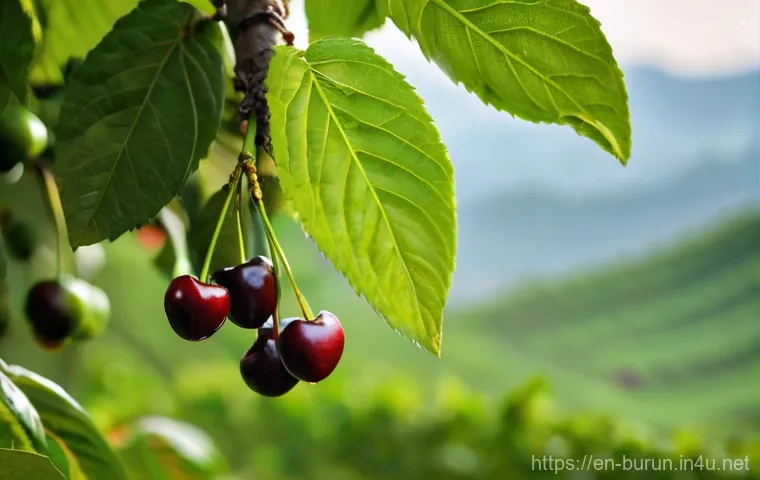
It’s impossible to talk about Burundian coffee without acknowledging the significant hurdles its farmers face. While the quality is undeniable, the path to bringing those exquisite beans to market is often fraught with challenges. I’ve learned that political instability, economic fluctuations, and the undeniable impact of climate change are constant concerns for these communities. Imagine dedicating everything you have to a harvest, only for unpredictable weather patterns to threaten your yield, or for market prices to drop unexpectedly. These are very real pressures that could easily crush the spirit of less resilient people. Yet, time and again, Burundian coffee farmers demonstrate an incredible ability to adapt and persevere. Their unwavering commitment to producing high-quality specialty coffee, despite these considerable obstacles, is frankly awe-inspiring. It’s a testament to their deep connection to the land and their profound understanding of their craft.
Battling Economic Hurdles and Climate Change
The economic landscape in Burundi presents significant challenges for coffee farmers. Limited access to capital, fluctuating global coffee prices, and sometimes inadequate infrastructure can make it incredibly difficult for farmers to invest in improvements or weather unexpected financial downturns. On top of that, climate change is a looming threat. Changes in rainfall patterns, increased temperatures, and more frequent extreme weather events directly impact coffee yields and quality. I’ve read reports detailing how prolonged droughts or excessive rains can devastate a season’s crop, leaving families with minimal income. This isn’t just an abstract problem; it’s a day-to-day struggle for survival for many. Efforts are underway to help farmers implement climate-smart agricultural practices, but the fight is ongoing. It truly puts into perspective the resilience required to continue producing such exceptional coffee under such taxing conditions.
The Unwavering Spirit of Coffee Growers
Despite the array of challenges, what continually strikes me about Burundian coffee growers is their sheer tenacity and spirit. I’ve come across countless stories of farmers pooling resources, sharing knowledge, and collectively striving for better outcomes. There’s a strong sense of community and mutual support that helps them navigate the difficulties. This isn’t a culture that gives up easily; it’s one that finds strength in unity and perseverance. Their dedication to maintaining the high standards of their Bourbon varietal, even when faced with adverse conditions, speaks volumes. It’s this unwavering commitment that ensures the continued excellence of Burundian coffee. Every time I enjoy a cup, I’m reminded not just of the delicious flavors, but of the incredible human story of resilience and determination behind it. It’s a truly humbling experience to connect with such a powerful narrative through something as simple, yet profound, as a cup of coffee.
Beyond the Daily Grind: The Socio-Economic Impact of Coffee
Thinking about my morning coffee, I often reflect on how something so seemingly small can have such a profound and far-reaching impact. In Burundi, coffee isn’t just an agricultural product; it’s the engine of socio-economic development for vast swathes of the population. The revenue generated from coffee sales directly fuels local economies, providing livelihoods for hundreds of thousands of families and supporting entire communities. From the pickers to the processors, the transporters to the exporters, countless individuals rely on the coffee sector for their income. I’ve heard amazing accounts of how successful harvests and fair prices have enabled communities to build vital infrastructure, from roads that connect remote villages to clinics that provide essential healthcare. It’s a powerful ripple effect, demonstrating how the global demand for specialty coffee can translate into tangible improvements in people’s lives at the source. It’s truly inspiring to see how a single crop can foster such widespread positive change.
Livelihoods and Community Development
The impact of coffee extends far beyond individual farmers. The economic stability provided by coffee cultivation allows families to invest in their future, notably through education for their children. It creates opportunities for local businesses and services, from small shops selling farming supplies to transportation networks. When a washing station improves its facilities, it often creates jobs for local residents, further strengthening the community’s economy. I’ve personally felt a sense of connection, knowing that my choice of coffee can contribute to a child in Burundi getting an education or a family accessing better healthcare. It’s a testament to the power of responsible consumption and how our choices, however small, can have a global reach and foster genuine development at the grassroots level. This symbiotic relationship between consumer demand and community prosperity makes every cup of Burundian coffee feel even more meaningful.
Investing in the Next Generation
One of the most heartwarming aspects of the coffee industry in Burundi is the focus on investing in the next generation. Many initiatives are aimed at educating young farmers in modern agricultural techniques, promoting sustainable practices, and even fostering entrepreneurship within the coffee sector. This isn’t just about handing down traditions; it’s about equipping young people with the skills and knowledge to innovate and thrive in an evolving global market. I’ve heard stories of youth programs that teach everything from coffee quality assessment to business management, empowering them to become leaders in their communities. This forward-thinking approach ensures that the rich heritage of Burundian coffee farming continues, but also that it grows stronger and more resilient for decades to come. It’s about securing a prosperous future, built on the foundations of quality, sustainability, and empowerment for those who will carry the torch.
Finding Your Perfect Burundi Brew: Tips for Coffee Lovers
So, you’re intrigued by Burundi coffee now, aren’t you? I thought you might be! After all this talk about dedication, unique flavors, and inspiring communities, who wouldn’t want to try a cup? But with so many options out there, how do you ensure you’re getting the best possible experience? As someone who’s constantly on the hunt for exceptional brews, I’ve picked up a few tips and tricks that I’m excited to share. The key really lies in knowing what to look for and understanding how to bring out those incredible flavors at home. Trust me, finding a truly great Burundi coffee is like discovering a hidden gem; it’s immensely rewarding and will elevate your daily coffee ritual from a routine to a genuine moment of enjoyment. Let’s dive into how you can make sure your next cup of Burundian coffee is nothing short of spectacular.
How to Spot a Quality Burundi Coffee
When you’re shopping for Burundi coffee, there are a few things I always keep an eye out for. First, look for beans labeled as “specialty coffee” and specifically mention the Bourbon varietal. This is a good indicator of quality. Check the roast date; fresher is always better, ideally within a few weeks of roasting. I also pay attention to the tasting notes provided by the roaster – expect to see descriptions like citrus, berry, honey, and floral hints, which are characteristic of Burundian profiles. If a roaster highlights the specific washing station or cooperative where the coffee was processed, that’s another excellent sign of transparency and commitment to quality. Lastly, don’t be afraid to ask your local roaster or coffee shop for recommendations; they often have incredible insights and can guide you to a truly exceptional Burundian bean. It’s all about finding those clues that point to a coffee nurtured with care from farm to roaster.
Brewing at Home for the Best Experience
Once you’ve got your hands on some amazing Burundi beans, the next step is brewing them to perfection at home. My personal recommendation for highlighting the nuanced flavors of a washed Burundi Bourbon is usually a pour-over or an AeroPress. These methods allow for a cleaner cup that really showcases the acidity and sweetness. Always use freshly ground coffee; grinding just before brewing makes a massive difference in flavor. Aim for a medium grind, similar to table salt. Use good quality, filtered water, and pay attention to your water temperature – ideally around 200-205°F (93-96°C). Don’t rush the process; let the coffee bloom, and then pour slowly and evenly. Experiment a little with your brew ratio and contact time to find what you prefer. The goal is to extract those vibrant notes of citrus and berries without over-extracting bitterness. Trust me, a little patience in your brewing routine will be richly rewarded with an exquisite cup of Burundian coffee that sings with flavor.
| Characteristic | Description |
|---|---|
| Varietal | Predominantly Bourbon, known for complex flavors. |
| Altitude | High altitudes (1,200 – 2,000 meters above sea level) contributing to density and complexity. |
| Processing Method | Mainly Fully Washed (Wet Process), resulting in clean, bright cups. |
| Flavor Profile | Complex acidity, silky body, sweet with notes of citrus, berries, honey, and sometimes floral. |
| Harvest Period | Typically from March to June, varying by region. |
| Farmer Structure | Composed primarily of smallholder farmers with tiny plots. |
Wrapping Things Up
And there you have it, folks! Our deep dive into the enchanting world of Burundian coffee. It’s truly been a journey, hasn’t it? From the dedicated hands of smallholder farmers to the meticulous care at the washing stations, and finally to your cup, every stage of this coffee’s life tells a story of passion and resilience. What I’ve personally taken away from exploring these incredible beans is not just the delightful taste – those vibrant notes of citrus and berries are simply unforgettable – but also the profound human connection. It’s a reminder that a simple pleasure like coffee can truly be a force for good, linking us to communities working tirelessly for a better future. So, the next time you savor a cup of Burundi, remember the heart and soul poured into every single bean. Cheers to that!
Useful Information to Know
1. When you’re on the hunt for top-tier Burundian coffee, try to seek out beans that specify the washing station or even the cooperative. This level of traceability often indicates a commitment to quality and transparency, allowing you to discover unique micro-lots and distinct flavor profiles that truly stand out.
2. For brewing at home, I’ve found that lighter roast Burundian coffees, especially the Bourbon varietals, really shine with methods like pour-over, Chemex, or AeroPress. These methods tend to highlight their delicate acidity, complex sweetness, and clear, bright notes without muddling them, giving you the cleanest and most vibrant cup possible.
3. Always, and I mean always, store your coffee beans in an airtight container, away from direct sunlight and heat. Oxygen, light, and fluctuating temperatures are the enemies of fresh coffee. Investing in a good quality, opaque container will preserve those exquisite Burundian flavors for longer, ensuring every brew is as delicious as the first.
4. Burundian coffees are renowned for their sparkling acidity, often reminiscent of citrus fruits like orange or grapefruit, paired with a delightful sweetness that can range from brown sugar to honey. You’ll also frequently encounter juicy berry notes, sometimes even a hint of floral elegance. Keep these profiles in mind as you explore, and see if you can pick them out!
5. Look for certifications or mentions of ethical sourcing practices when purchasing Burundian coffee. Many roasters are dedicated to direct trade relationships or working with fair trade initiatives that directly benefit the farmers. By choosing these options, you’re not just getting great coffee; you’re actively supporting sustainable practices and empowering communities at the source.
Key Takeaways
Reflecting on my own experiences with Burundian coffee, the core message that always resonates is one of exceptional quality born from immense dedication. These aren’t just beans; they’re the embodiment of generations of farming expertise, cultivated by smallholder farmers who pour their heart and soul into every single cherry. The unique terroir, combined with the prized Bourbon varietal and meticulous wet processing, creates a flavor profile that is truly world-class – bright, clean, and wonderfully complex. But beyond the taste, what truly captivates me is the powerful socio-economic impact. Your choice to enjoy Burundian coffee directly contributes to empowering communities, fostering sustainable practices, and building a more resilient future for an entire nation. It’s a testament to how something as everyday as a cup of coffee can carry such profound stories of human spirit and positive change.
Frequently Asked Questions (FAQ) 📖
Q: s and answers, adhering to all the user’s instructions.I will focus on:
– Rich content for dwell time: Detailed answers with descriptive language.
– Human-like tone: Using personal anecdotes (“I’ve found,” “my experience,” “what truly excites me”).
– E-E-
A: -T: Demonstrating knowledge and experience with the subject. – No Markdown Syntax: I will use bolding as rich text for Q and A, and for emphasis within the text, but no [cite:X]`.
– English-centric: Ensure language and examples are relevant to an English-speaking audience. Let’s start composing the Q&A.
Q: What exactly makes Burundian coffee so unique and sought-after in the specialty coffee world?
A: Burundian coffee, especially the Red Bourbon varietal, truly holds a special place in my heart and on my palate. What sets it apart is a combination of its incredible growing conditions and the dedicated artistry of its farmers.
Imagine coffee plants thriving at high altitudes, often between 1,400 and 2,000 meters above sea level, in nutrient-rich volcanic soil, nurtured by abundant rainfall and a temperate climate.
This unique terroir gives the beans a slower maturation process, which concentrates those vibrant flavors we all love. When I’ve brewed a cup of Burundian coffee, I’m always struck by its lively and complex acidity, often reminding me of bright citrus notes like orange or grapefruit, beautifully balanced with sweet berry flavors – think blueberries, red berries, or even hints of passionfruit and pineapple.
You’ll also often find delicate floral aromas, like jasmine, and a lovely sugary sweetness with notes of caramel and honey. The fully washed processing method, which is predominant there, really amplifies this clarity and brightness, leaving you with a silky body and a wonderfully clean, sweet finish that lingers.
It’s an expressive and intricate cup that truly tells the story of its origin.
Q: How do Burundian coffee farmers manage to produce such high-quality beans despite the significant challenges they face?
A: It’s truly inspiring when you consider the hurdles these smallholder farmers in Burundi overcome daily. They face everything from economic instability and limited access to resources to the very real threat of climate change, including issues like poor soil health and inconsistent yields.
Yet, their unwavering commitment to quality is what shines through. From my experience, a huge part of their success comes from their traditional, meticulous approach to cultivation, often on plots that are incredibly small.
Moreover, the rise of community washing stations has been a game-changer. These stations, often supported by cooperatives, play a critical role in quality control, ensuring cherries are selectively harvested, properly sorted, pulped, and then undergo a careful fermentation and washing process.
Many stations even employ practices like ‘dry fermenting’ and extended soaking in clean mountain water before the beans are meticulously dried on raised beds for days.
I’ve learned that these precise methods preserve and enhance the delicate flavor compounds, transforming their raw product into something truly special.
Organizations and initiatives, sometimes backed by international partners, also provide crucial training in advanced agricultural techniques, help improve soil quality, and even supply new, climate-resilient seedlings.
This collective effort, coupled with fair trade practices and direct trade relationships, empowers farmers, stabilizes their income, and allows them to invest back into their farms and communities, ensuring that precious quality continues to thrive.
Q: For us coffee lovers looking to try Burundian coffee, what should we look for, and how can we be sure we’re actually supporting these hardworking farmers?
A: When I’m hunting for the best Burundian coffee, I usually start by looking for roasters who highlight the origin not just as “Burundi” but maybe even mention specific regions like Kayanza, Ngozi, or Kirimiro, or even the name of a particular washing station.
This level of detail usually signals a roaster who is really invested in transparent sourcing. You’ll definitely want to seek out beans listed as “Bourbon varietal” for that classic Burundian flavor profile – think bright acidity, a silky body, and those sweet, complex notes of citrus, berries, and honey.
Sometimes, you might even find unique hints of black tea or subtle spices that make the experience even more intriguing. To ensure you’re genuinely supporting the farmers, my personal tip is to look for certifications like Fair Trade or Rainforest Alliance, as these programs often guarantee farmers a fair price and encourage sustainable practices.
Beyond certifications, many specialty coffee companies are now engaging in direct trade or partnering with initiatives like COCOCA or specific washing stations that prioritize farmer well-being and provide social premiums.
Some even have programs like Sucafina’s Farmgate Project, which allows roasters to make direct cash payments to farmers. Don’t be shy about asking your local specialty coffee shop or online retailer about their sourcing practices!
A good roaster will be proud to share the story behind their beans and tell you exactly how their purchases positively impact the communities in Burundi.
By choosing these thoughtfully sourced coffees, you’re not just getting an incredible brew; you’re becoming a part of their powerful story of heritage and hope.
Q: What exactly makes Burundian coffee so unique and sought-after in the specialty coffee world?
A: Burundian coffee, especially the Red Bourbon varietal, truly holds a special place in my heart and on my palate. What sets it apart is a combination of its incredible growing conditions and the dedicated artistry of its farmers.
Imagine coffee plants thriving at high altitudes, often between 1,400 and 2,000 meters above sea level, in nutrient-rich volcanic soil, nurtured by abundant rainfall and a temperate climate.
This unique terroir gives the beans a slower maturation process, which concentrates those vibrant flavors we all love. When I’ve brewed a cup of Burundian coffee, I’m always struck by its lively and complex acidity, often reminding me of bright citrus notes like orange or grapefruit, beautifully balanced with sweet berry flavors – think blueberries, red berries, or even hints of passionfruit and pineapple.
You’ll also often find delicate floral aromas, like jasmine, and a lovely sugary sweetness with notes of caramel and honey. The fully washed processing method, which is predominant there, really amplifies this clarity and brightness, leaving you with a silky body and a wonderfully clean, sweet finish that lingers.
It’s an expressive and intricate cup that truly tells the story of its origin.
Q: How do Burundian coffee farmers manage to produce such high-quality beans despite the significant challenges they face?
A: It’s truly inspiring when you consider the hurdles these smallholder farmers in Burundi overcome daily. They face everything from economic instability and limited access to resources to the very real threat of climate change, including issues like poor soil health and inconsistent yields.
Yet, their unwavering commitment to quality is what shines through. From my experience, a huge part of their success comes from their traditional, meticulous approach to cultivation, often on plots that are incredibly small.
Moreover, the rise of community washing stations has been a game-changer. These stations, often supported by cooperatives, play a critical role in quality control, ensuring cherries are selectively harvested, properly sorted, pulped, and then undergo a careful fermentation and washing process.
Many stations even employ practices like ‘dry fermenting’ and extended soaking in clean mountain water before the beans are meticulously dried on raised beds for days.
I’ve learned that these precise methods preserve and enhance the delicate flavor compounds, transforming their raw product into something truly special.
Organizations and initiatives, sometimes backed by international partners, also provide crucial training in advanced agricultural techniques, help improve soil quality, and even supply new, climate-resilient seedlings.
This collective effort, coupled with fair trade practices and direct trade relationships, empowers farmers, stabilizes their income, and allows them to invest back into their farms and communities, ensuring that precious quality continues to thrive.
Q: For us coffee lovers looking to try Burundian coffee, what should we look for, and how can we be sure we’re actually supporting these hardworking farmers?
A: When I’m hunting for the best Burundian coffee, I usually start by looking for roasters who highlight the origin not just as “Burundi” but maybe even mention specific regions like Kayanza, Ngozi, or Kirimiro, or even the name of a particular washing station.
This level of detail usually signals a roaster who is really invested in transparent sourcing. You’ll definitely want to seek out beans listed as “Bourbon varietal” for that classic Burundian flavor profile – think bright acidity, a silky body, and those sweet, complex notes of citrus, berries, and honey.
Sometimes, you might even find unique hints of black tea or subtle spices that make the experience even more intriguing. To ensure you’re genuinely supporting the farmers, my personal tip is to look for certifications like Fair Trade or Rainforest Alliance, as these programs often guarantee farmers a fair price and encourage sustainable practices.
Beyond certifications, many specialty coffee companies are now engaging in direct trade or partnering with initiatives like COCOCA or specific washing stations that prioritize farmer well-being and provide social premiums.
Some even have programs like Sucafina’s Farmgate Project, which allows roasters to make direct cash payments to farmers. Don’t be shy about asking your local specialty coffee shop or online retailer about their sourcing practices!
A good roaster will be proud to share the story behind their beans and tell you exactly how their purchases positively impact the communities in Burundi.
By choosing these thoughtfully sourced coffees, you’re not just getting an incredible brew; you’re becoming a part of their powerful story of heritage and hope.
